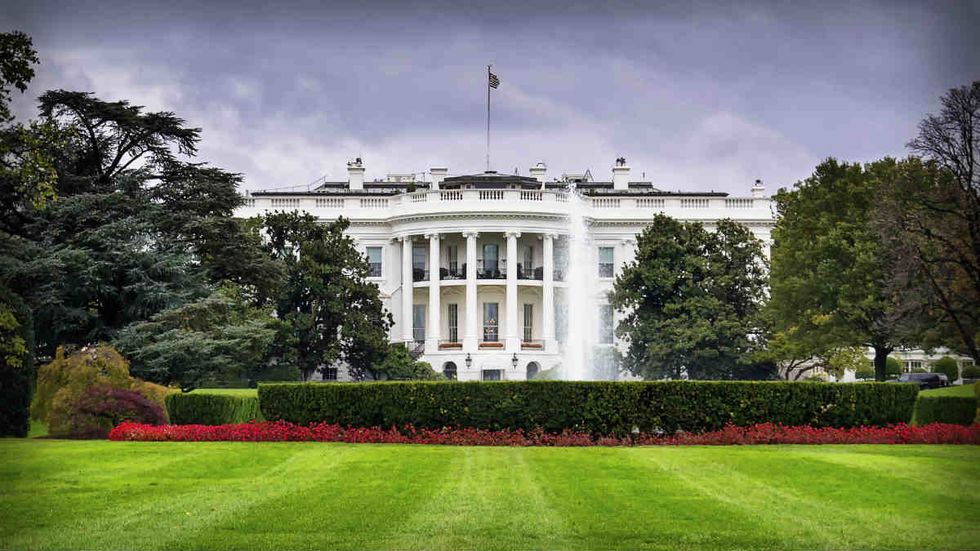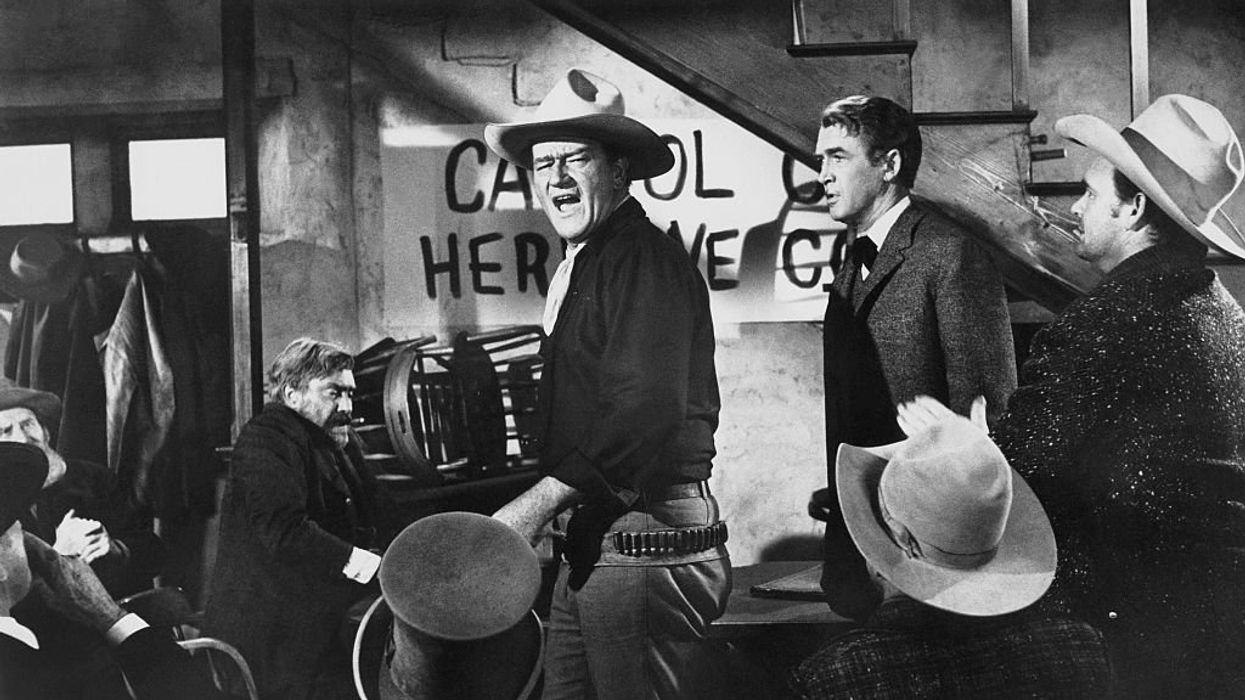
© 2024 Blaze Media LLC. All rights reserved.
On Tuesday, James Comey, the former director of the F.B.I. was fired by President Donald Trump. Like much that Trump does, it was met with cries of “constitutional crisis.” Which on their face are laughable.
But there is a broader question lurking below the surface of the debate, which goes to the fundamental problem with our current political state: Should the president, in his capacity as executive, be able to fire any executive branch employee? The answer to that question gets at the heart of our political morass.
As the Heritage Foundation’s Ronald Pestritto explains in a paper examining the birth of the administrative state, the founders believed that man was inherently self-interested, and that any proper government must check man’s self-interest. That is the basis for the American system of checks and balances.
As Pestritto further explains, it is why three distinct branches of government were called for in the Constitution. Each branch was set with limited roles. The executive was granted only the powers to administer government. That would include hiring and firing.
The founders set up checks on that power to administer, by giving Congress the power of the purse, and the judiciary the power to interpret laws. Each branch was co-equal. Each action of those branches was set to be ultimately checked by the people, at the ballot box.
The founders believed in the rule of law. Pestritto defines this as set rules — that all people understand and agree upon ahead of time. Not rulemaking which happens on a whim.
A reliance on the rule of law is necessary when one presupposes that all men are fallible and given to self-interest. Pestritto points his reader to Federalist No. 6, in which “Publius addresses the Anti-Federalist and Enlightenment notion that human nature had improved and become less dangerous. [Publius] characterizes those holding such notions as ‘far gone in utopian speculations.’”
Under the constitutional framework of government, the president is vested with ultimate administrative authority. That was the founders’ intent. Through that lens, what Trump did earlier this week is exactly what the framers of the Constitution expected the president to do. If that action was grossly unnecessary, they set up a system by which the legislative branch, through the power of the purse or impeachment could respond.
James Madison argued that certain maladministration could arise to the level of an impeachable offense, according to Justia.com.
Debate prior to adoption of the phrase and comments thereafter in the ratifying conventionswere to the effect that the President (all the debate was in terms of the President) should be removable by impeachment for commissions or omissions in office which were not criminally cognizable. And in the First Congress’ “removal” debate, Madison maintained that the wanton dismissal of meritorious officers would be an act of maladministration which would render the President subject to impeachment. [Emphasis added.]
Which brings us to the current state of affairs, and back to Pestritto. In the late 1800s the first civil service law at the national level was enacted, but this did not immediately set us on the path to an unaccountable administrative state. As Pestritto painstakingly details the responsibility for that falls to Woodrow Wilson, even before he became president.
Wilson believed that the Constitution’s system of checks and balances — and the vesting of governmental administration to the executive was antiquated. He pushed for and established the modern administrative state. Wilson fought for separating the administrators of government from politics. Here’s how Pestritto explains it:
Wilson introduced the concept of separating politics and administration--of treating administrative governance as an object of study entirely separate from politics--in a series of essays in the latter part of the 1880s.[citation] Goodnow expanded upon this Wilsonian concept in the 1890s and eventually published a book in 1900 titled Politics and Administration.
The fundamental assumption behind the vast discretion that Progressives wanted to give to administration was a trust in or optimism about the selflessness, competence, and objectivity of administrators, and thus a belief that the separation-of-powers checks on government were no longer necessary or just. If the Framers of the Constitution had instituted the separation of powers out of fear of "the abuses of government"--fear that the permanent self-interestedness of human nature could make government "administered by men over men"[citation] a threat to the natural rights of citizens--then the advocates of administrative discretion concluded that such fears, even if well-founded in the early days of the republic, no longer applied in the modern era. Thus, administration could be freed from the shackles placed upon it by the separation of powers in order to take on the new tasks that Progressives had in mind for the national state. This key assumption behind the separation of politics and administration is exemplified in Wilson's political thought.
The strong Progressive belief in the enlightenment and disinterestedness of administrators stands as an instructive contrast to the permanent self-interestedness that the Framers of the U.S. Constitution saw in human nature.[citation]Just as this sobriety about the potential for tyranny led the Framers to circumscribe carefully the authority of the national government, the Progressives' passionate optimism fueled their call for maximum discretion for administrators.
In short, Wilson, and his ilk, believed that government administrators were selfless and professional. He believed that a professional administrative class, which now numbers 1.4 million people, was preferable to a smaller, more limited government answerable to the people.
The founders believed that the legislative and judicial functions should not be carried out by administrators. But that is exactly what happens today. The Code of Federal Regulations are not promulgated by Congress, and signed into law by the president. No, unaccountable professional administrators, in effect, make law. Not only do they make law, through administrative courts and administrative law judges, the executive branch now takes on the role of the judicial branch in some cases.
This perversion of the system set up by the founders is at the root of many of our crises today. The progressive notion that unelected bureaucrats, including the F.B.I. director, are somehow independent of presidential authority, is in and of itself a form of tyranny.
When people argue that no one man, or woman, should have the power to fire anyone in the executive branch of government … ask yourself, what is worse: Giving one man, constrained by checks and balances, the ability to form and administrate government as he told the voters he would do, or a 1.4 million-strong, largely unaccountable bureaucracy chugging along, that is too big to be changed? Not only by one man, but even by that man in concert with the legislative and judicial branches?
Which of the above scenarios is more tyrannical, and infringes upon your liberty?
The answer is self-evident.
Editor's note: The image for this piece has been updated to better reflect the article's content.
Want to leave a tip?
We answer to you. Help keep our content free of advertisers and big tech censorship by leaving a tip today.
Want to join the conversation?
Already a subscriber?
more stories
Sign up for the Blaze newsletter
By signing up, you agree to our Privacy Policy and Terms of Use, and agree to receive content that may sometimes include advertisements. You may opt out at any time.
© 2024 Blaze Media LLC. All rights reserved.
Get the stories that matter most delivered directly to your inbox.
By signing up, you agree to our Privacy Policy and Terms of Use, and agree to receive content that may sometimes include advertisements. You may opt out at any time.



